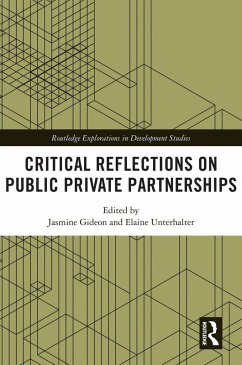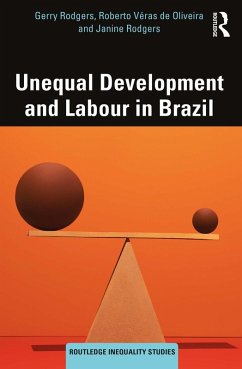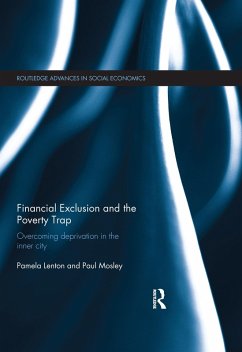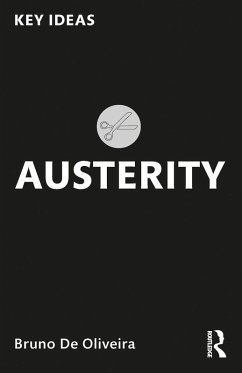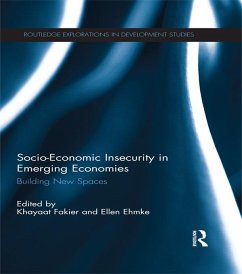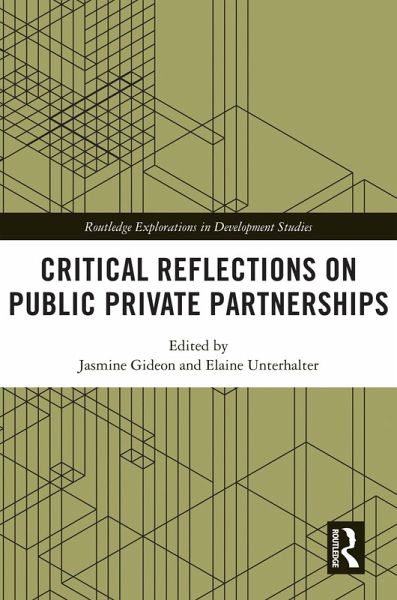
Critical Reflections on Public Private Partnerships (eBook, ePUB)
Versandkostenfrei!
Sofort per Download lieferbar
41,95 €
inkl. MwSt.
Weitere Ausgaben:

PAYBACK Punkte
21 °P sammeln!
This book argues that despite the hype within many policy circles, there is actually very little evidence to support the presumed benefits of Public Private Partnerships (PPPs) in reducing poverty and addressing inequalities in the provision of and access to public services.Taking a cross-sectoral comparative approach, this book investigates how PPPs have played out in practice, and what the implications have been for inequalities. Drawing on a range of empirical case studies in education, healthcare, housing and water, the book picks apart the roles of PPPs as financing mechanisms in several ...
This book argues that despite the hype within many policy circles, there is actually very little evidence to support the presumed benefits of Public Private Partnerships (PPPs) in reducing poverty and addressing inequalities in the provision of and access to public services.
Taking a cross-sectoral comparative approach, this book investigates how PPPs have played out in practice, and what the implications have been for inequalities. Drawing on a range of empirical case studies in education, healthcare, housing and water, the book picks apart the roles of PPPs as financing mechanisms in several international and national contexts and considers the similarities and differences between sectors. The global COVID-19 pandemic has raised significant questions about the future of social provision and through its analysis of the emergence and expansion of the role of PPPs, the book also makes a vital contribution to current discussion over this rapidly changing landscape.
Overall, this wide-ranging guide to understanding and evaluating the role of PPPs in the Global South will be useful to researchers within development, international relations, economics, and related fields, as well as to policy makers and practitioners working in development-related policy.
Taking a cross-sectoral comparative approach, this book investigates how PPPs have played out in practice, and what the implications have been for inequalities. Drawing on a range of empirical case studies in education, healthcare, housing and water, the book picks apart the roles of PPPs as financing mechanisms in several international and national contexts and considers the similarities and differences between sectors. The global COVID-19 pandemic has raised significant questions about the future of social provision and through its analysis of the emergence and expansion of the role of PPPs, the book also makes a vital contribution to current discussion over this rapidly changing landscape.
Overall, this wide-ranging guide to understanding and evaluating the role of PPPs in the Global South will be useful to researchers within development, international relations, economics, and related fields, as well as to policy makers and practitioners working in development-related policy.
Dieser Download kann aus rechtlichen Gründen nur mit Rechnungsadresse in A, B, BG, CY, CZ, D, DK, EW, E, FIN, F, GR, HR, H, IRL, I, LT, L, LR, M, NL, PL, P, R, S, SLO, SK ausgeliefert werden.




